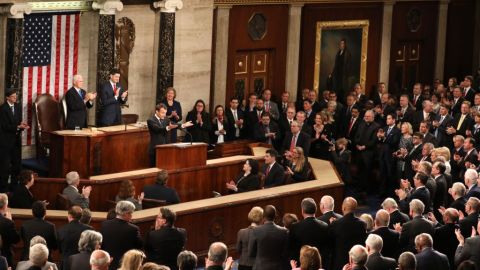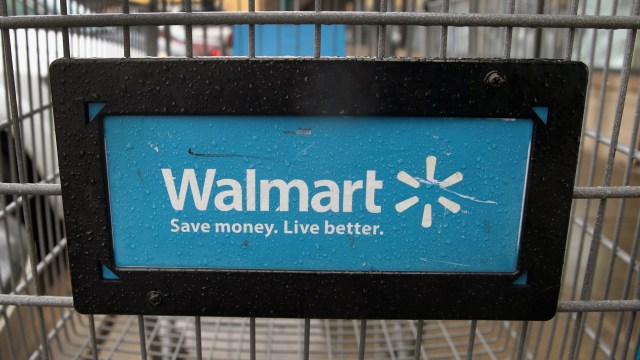Will we be able to trust our institutions again?

We know the story well. For most of history, humans banded together in small tribes, the number of which was capped at around 150 members, according to British anthropologist Robin Dunbar. That statistic represents a correlation between the number of humans we can maintain meaningful relationships with—that we can remember and trust—and brain size. Anyone outside of that scope was a potential threat and were to be treated accordingly.
Technology advanced us as a species. Trade, new communication skills (such as written languages), and advanced forms of travel started bridging the gap between tribes. The potential for widespread civilization kicked off in the Indus Valley, where cities such as Sindh and Punjab boasted over 23,000 citizens, with a complex network of suburbs based on trading spreading out from there.
Such an idea is only possible thanks to one factor: accounting. That’s what financial experts Michael J Casey and Paul Vigna argue in their latest book, The Truth Machine: Blockchain and the Future of Everything. Written communications began with ledger books, a fact the authors use to frame our understanding of how blockchain will become the most important technological breakthrough since the dawn of the Internet. But the underlying mechanism that allows blockchain to work dates back to the Harappan civilization and the origin of written language because what accounting allows for is trust:
[Ledgers] help us keep track of all the multiple exchanges upon which society is built. Without them, the giant, teeming cities of twenty-first-century society would not exist. That said, ledgers are not truth itself … they are tools for getting closer to the truth, to an approximation of it that’s acceptable to all.
If we agree to trade one cow for twenty pounds of grain, a record ensures that we’ll each stick to our end of the bargain. It boggles the mind to think that the greatest works of literature are rooted in crude pictorial representations of swine and rice, but that’s how social evolution works, by co-opting new technologies for alternative purposes. Without a receipt, our agreement becomes my word against yours. If one of us decides to forget the parameters of our deal, physical violence is likely to ensue. In this sense, accounting made the world less violent.
Of course, even with all the accounting and ledgers at our disposal today, trust is not guaranteed. The authors wouldn’t be arguing for the necessity of blockchain if the institutions we are forced to trust held up their end of the bargain. But many of the biggest haven’t; the erosion of public trust is damaging opportunities for civilized discourse amongst the tribes. When you lose trust in those you have to depend on, the result is never positive. Discord has been sown; those paying the price are the tribes bickering over social media and reality television celebrities, who should instead be paying attention to what really matters.
The American public at large lost a lot of trust in banks after the financial crisis. The Dodd-Frank law helped us regain some level of trust. The government, acting as an intermediary, placed restrictions on the risks banks could take with our money. The Volcker Rule, itself bound up in legal squabbling for five years before its partial implementation, has been an important remedy as it put a ban on proprietary trading. Even though institutions like Bank of America announced that it wouldn’t stifle profits, the current administration has decided to soften the rule during a time when banks are more profitable than ever before. And as they take more risks with our money, trust continues to decline.
There has been much criticism over how little trouble—for the most part, none—executives at those banks were in after the bailout. Financial mischief comes at a steep cost, yet the richest among us seem to pay little for it. Or, as happened to Dinesh D’Souza yesterday, they get a presidential pardon, even though he lied to investigators about illegal campaign contributions. D’Souza isn’t the only one in the spotlight:
The president was focusing on cases where he argued that the justice system had unfairly treated celebrity figures, all of whom were convicted of crimes that in some ways mirrored charges that have been made or mentioned in connection with allies of Mr. Trump in recent weeks, including campaign finance violations and lying to investigators.
If you can game the system and get away with it, it opens the door for further trickery—and less trust that the system has any real purpose at all. Casey and Vigna argue that while money is obviously an important component, the issue goes deeper:
The real problem was never about liquidity, or a breakdown of the market. It was a failure of trust. When that trust was broken, the impact on society—including on our divided political culture—was devastating.
The authors note that identity has been weaponized. While they’re specifically discussing online identities and the surrendering of information to governments and corporations to be able to function as a member of society, the larger question is making us confront our tribal origins in a way few of us might have believed possible just a decade ago.
The breaking down of our financial institutions and the questionable usage of data by tech companies are not separate phenomena from a growing distrust in government and each other. They all revolve around personal identity and how we relate to the environment and culture around us. At the moment, most social transactions seem at best a Band-Aid to a wound that needs extensive suturing, a glossing over in a society that cannot trust.
Which is why, as I wrote about yesterday, Casey and Vigna argue for self-sovereign identity that will one day be available thanks to blockchain. Nearly every transaction we make in the course of our day, from purchasing an item and paying rent to logging onto social media and reading our favorite subscription-based media, requires third-party verification. Unfortunately, the verifying parties are those we’ve grown to distrust, creating an irresolvable tension that is getting uglier by the day.
Every step forward requires growing pains. Proponents of the Civil Rights era experienced whiplash during the Nixon administration. The current public xenophobia and racism resulted, in large part, to the election of a black president. It would seem that biology subverts culture, yet biology is simultaneously responsible for culture. The deciding factor in which direction we turn—to our tribal origins or to consciously decide to rise above it—is rooted in trust.
Further growing pains await. Self-sovereign identity won’t be easy, but it’s certainly necessary. Reclaiming our ability to trust one another depends on it. While subverting the very agencies that have created this distrust is going to require a battle of epic proportions, I keep thinking of the quote from Barack Obama that ends the recent HBO documentary, The Final Hour—that the “most important title is citizen.” Casey and Vigna put it best when the conclude,
We owe it to humanity to try to restore human agency to the business of just being in the world.
—
Stay in touch with Derek on Facebook and Twitter.





